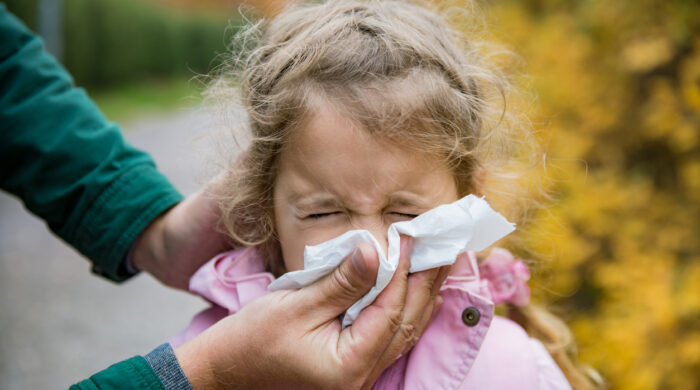You’ve checked off everything on your back-to-school list, you’ve met your kid’s teachers, and you’ve coordinated your vacation days to match up with their school breaks. You’re on a roll!
But before you drop them off on their first day of school, it’s important to take proactive steps to help your kids defend themselves against catching common illnesses at school. After all, the key to good health is diligent preparation. Here are a few actions you can take to help keep your kids, and your whole family, healthy this school year.
Take Your Child To Get A Physical
Before school starts, make an appointment with your family medicine provider for a checkup or a physical. Your provider will be able to give valuable insight on how your child is developing, what vaccinations your child has and which ones need to be updated, and any additional preventative actions you can take to help your child ward off this year’s flu virus.
Make a copy of your child’s physical form to give to the school so that they have it on file. If your child has any special prescription medications or asthma, give their school the following:
- A bottle of medication in its labeled container. If your child needs an inhaler, make sure you give an additional inhaler to the school in case of an emergency.
- A note stating that you give permission to the school personnel to give your child their medication. Include any directions for administering the medication.
Practice Good Hygiene
Help your children protect themselves from contagious viruses, bacteria, parasites, and fungi by teaching them good hygiene practices. Teach your kids to wash their hands after they use the restroom, after they touch animals, frequently throughout the day, before they eat food, and before and after school. Teach them also to not to touch their mouth, eyes, or nose with their hands, and train them to cover their mouths when they sneeze or cough to keep others safe.
Germs are easily spread when an infected person comes into contact with an uninfected person, either through physical contact, airborne droplets, or through mutual contact with a contaminated surface like a desk or faucet. Making good hygiene a habit can help prevent the most common back-to-school illness, including the flu virus (the common cold).
Alcohol-based hand sanitizer is also a great way to keep hands clean and virus-free. Give your child one to carry with them in their backpack, and buy a few extra bottles for their classroom.
Cook Nutritious Food & Stay Hydrated
When the body is deprived of nutrients, it has difficulty defending against germs. One of the best ways to help your kids stay healthy this school year is to make sure they are consuming healthy foods full of antioxidants, like fruit and vegetables. For dietary recommendations for your child, read this article by the American Heart Association, and talk to your family physician.
In addition to consuming nutrient-dense food, one of the best ways to defend your child against illness is to help them stay hydrated by drinking water. Drinking water keeps the body hydrated, and cleanses the body of impurities. If your child plays a sport or has any sort of physical activity, make sure they’re consuming enough water to stay hydrated (2 cups of water every ½ hour while exercising). Your back-to-school shopping list should include a water bottle for your child to take with them to school.
Adopt Stress Management Techniques
This tip is an important one for the whole family. The school year can be chaotic with school activities, play dates, carpools, and homework, and this can take a toll on everyone. If you notice a change in mood or behavior, a drop in grades, sudden physical changes like weight loss or weight gain, or difficulty sleeping, your child may be stressed. Here are a few ways you, as a parent, can help get them relaxed and focused.
- Wake up earlier for school – Make sure they have plenty of time to get ready for school. Rushing to school every morning is a stressful way to start the day.
- Limit screen time before bed – Make your screen time curfew a couple hours before bed time to help your child relax their mind for a good night’s sleep.
- Adjust their sleep environment. Invest in good blackout curtains, dark bed sheets, and a noise machine to set the tone for the night.
- Encourage them to talk about it. Ask them questions about their day to open up the lines of communication. If you feel your child is not telling you everything, urge them to speak to a school counselor. Journaling is a great way to relieve stress as well.
- Practice relaxation. Teach them to pause for deep breaths, use positive self-talk, and practice other methods for mental relaxation.
- Reduce extracurricular activities. Cut back on activities if you suspect that those activities are the root cause of stress for your child. Being too ‘busy’ may be harming your child’s performance in school and doing more harm than good.
Keep Kids Home When They’re Sick
Even if you do everything right, your child may still get sick. If they do, make sure that you keep them home from school while they’re sick, and for 24 hours after they’re symptom free. If you work, have a backup plan in place for when your child becomes sick. Talk to a neighbor, relative, or a babysitter about being on call in case of an emergency.
If you have any additional questions about keeping your family safe this school year, reach out to us to request an appointment with a primary care provider at WWMG.
